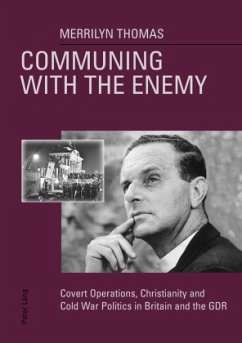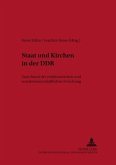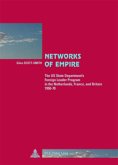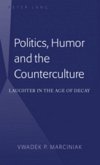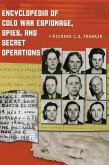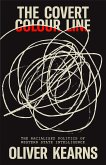This book examines the secret role of British and German Christians in the Cold War, both as non-governmental envoys and as members of covert intelligence operations. Based on archival sources, including those of the Stasi together with interviews with some of those involved, it demonstrates the way in which religion was used as a tool of psychological warfare. During the 1960s, the concept of Christian-Marxist dialogue was espoused by Church leaders and appropriated by politicians. In the GDR, Ulbricht used Christian-Marxist dialogue to quell opposition to his regime; in the West, politicians encouraged a policy of détente which led to the erosion of communist ideology. As the seeds of Ostpolitik were sown, Christians tunnelled their way beneath the ideological barriers of the Cold War in the name of reconciliation while secretly establishing subversive networks. At the same time, they provided political leaders with a hidden channel of communication across the Iron Curtain. This book examines the 1965 Coventry Cathedral project of reconciliation in Dresden, the work of Paul Oestreicher, and the activities of the German Christian organisation Aktion Sühnezeichen. In doing so, it reveals the complexity of the Cold War world in which both sides appeared to hold out the hand of friendship while secretly working to eliminate the enemy.
Perlentaucher-Notiz zur F.A.Z.-Rezension
Erhellende Einsichten in die Dialektik einer gegenseitigen Instrumentalisierung verdankt Rezensent Gottfried Niedhart dieser Studie zu einem Dresdener Wiederaufbauprojekt in den sechziger Jahren. Damals war dem Rezensenten zufolge eine Gruppe von 31 jungen Engländern in die zwanzig Jahre zuvor von britischen Bombern zerstörte Stadt gereist, um beim Wiederaufbau eines unter kirchlicher Leitung stehenden Diakonissenhauses zu helfen. Positiv wirkt sich auf die, seinem Eindruck zufolge auf "ausgedehnte Archivstudien" gestützte Untersuchung aus, dass die Autorin persönlich an dem Friedensprojekt teilgenommen hat. Überzeugend konnte sie dem Rezensenten nun belegen, dass hinter dem oberflächlich "rein kirchlichen" Versöhnungsprojekt auf beiden Seiten auch politisches Kalkül stand und "hinter den Kulissen" britische Regierungsstellen und die Stasi in das Projekt einbezogen waren. Für die Briten habe das Projekt als "Trojanisches Pferd" fungiert, um in den hermetisch abgeschirmten Bereich jenseits des Eisernen Vorhangs einzudringen, die Gesellschaft zu infiltrieren und von innen zu verändern. Der damalige DDR-Regierungschef dagegen habe die Aktion dazu nutzen wollen, "die kirchliche Opposition an den Staat zu binden".
© Perlentaucher Medien GmbH
© Perlentaucher Medien GmbH
«The searching light that Dr Thomas sheds so effectively on the political and ideological machinations of the mighty in London, Berlin, Coventry, and Dresden reveals much in the background which had previously been obscure. Her skill in interpreting an immense amount of archival material underlies many shrewd judgements of persons and policies.» (John Arnold, The Church Times)
«[Merrilyn Thomas hat] ein wichtiges Buch geschrieben. Es enthält einen weitgehend unbekannten Teil der Geschichte und erinnert daran, was wir den christlichen Kirchen und den Geheimdiensten zu verdanken haben.» (Egon Bahr)
«[Merrilyn Thomas hat] ein wichtiges Buch geschrieben. Es enthält einen weitgehend unbekannten Teil der Geschichte und erinnert daran, was wir den christlichen Kirchen und den Geheimdiensten zu verdanken haben.» (Egon Bahr)

